Joe Nalven is a former Lecturer of Anthropology and Lawyering Skills at the University of San Diego.
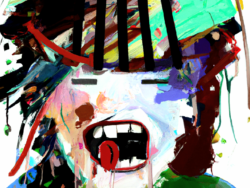
PEN America’s report on American classrooms paints a dark picture: legislatures are passing gag orders on college administration, faculty, and academic norms. Others, looking at the same picture, see hopeful rays of light: legislatures are correcting the overreach of “diversity, equity, and inclusion” practices. We see the same difference of perspective in a parallel report […]
Read More
The Chronicle of Higher Education (CHE) recently published a brief, useful, and competent artificial intelligence (AI) guide for university administrators, “Adapting to AI: How to understand, prepare for, and innovate in a changing landscape.” The author is Taylor Swaak, a reporter for CHE. Swaak has done her homework for this Guide, living up to her […]
Read More
Joseph Aoun advocates for revising higher education to adapt to artificial intelligence (AI) challenges. I have also advocated for this revision. Aoun presents a rationale and a buffet of possibilities. Here, I will extract a core recommendation to explore how combining disciplines with AI might work. Aoun writes: Since AI has extended its tendrils into […]
Read More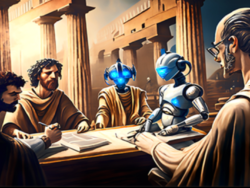
What are the important topics that make a university education valuable? And even while the student traverses the various courses? Or in the future, when the student takes his or her place in society? I attended Columbia College in the 1960s. I took the foundational classes in Western Civilization and Humanities, but I failed to […]
Read More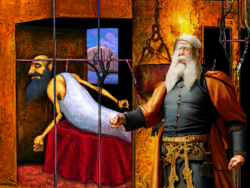
Many philosophers, social thinkers, legislators, and those delirious with power have proposed ways to fix the human condition. Societies themselves have often been organized, often by custom as well as laws, to shape the odd ways in which humans behave—odd ways that often emanate from a desire for individual freedom. Those fixes and organizational principles […]
Read More
Wicked problems need wicked science to, minimally, frame what is puzzling. Wickedness is not a moral judgment. Instead, it is tied to the limits of knowing—when rationality is encumbered by ambiguity and uncertainty and when control over the variables is limited or currently impossible. Predictions that emerge from modeling, especially those that reach decades into […]
Read More
Author’s Note: The cover image for this article was created using Text-to-Image artificial intelligence. The prompt was: “Capture the essence of an ethnically diverse student study group, males and females, wide-eyed and immersed in their bedroom, surrounded by books and study materials. The room should exude a sense of curiosity and innocence. A chatbot genie […]
Read More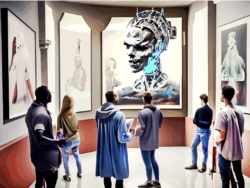
This marks the second of a two-part series by digital artist Joe Nalven who explores the integration of AI in campus art galleries as an approach to supersede academic silos. Part one of this series can be found here. Gallery One ─ Identical Objects, Words, Different Perceptions Students will discuss how words that describe an […]
Read More
This marks the beginning of a two-part series by digital artist Joe Nalven who explores the integration of AI in campus art galleries as an approach to supersede academic silos. Just a few years ago, maybe just one year ago, this article would have been considered unrealistic or fantasy—certainly not worthy of administrative attention nor […]
Read More
A University Without Walls, A Prison Without Cells, and Extinction Superintelligent Bot by Joe Nalven and DALL●E 2 Science fiction may foreshadow the future of AI. Antony Bryant’s call for papers cites Stanisław Lem’s short story, Golem XIV, written in 1981, which sought to anticipate where humanity and its AI technology were headed. In Lem’s […]
Read More
Chatbots like Google’s Bard, OpenAI’s ChatGPT, Baidu’s Wenxin Yiyan (Ernie), and ChatSonic allow humans to communicate with machines using natural human language through text-based or, in the case of Alexa and Siri, voice-based systems. Some see these early versions of an increasingly sophisticated human–machine communication framework as a Pandora’s box that needs to be paused […]
Read More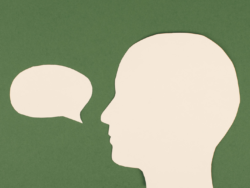
One of my teaching tricks is to ask my students, “Can we have the word up without the word down?” If we have only one of these words, we find ourselves lost in that memorable koan—the sound of one hand clapping. Some words and ideas require complements. Others, such as hot and cold, also include […]
Read More
If you listened to the first day of oral arguments in the twin racial preference cases before the Supreme Court, you might have wondered whether the participants were AWI—Arguing While Intoxicated. Surely, they must have known that ‘diversity’ is an illusion. Humans have far preferred tribal, sectarian, kin, national, ethnic, linguistic, and racial categories; or, […]
Read More
The Supreme Court and American Values This article is about a Supreme Court decision—actually, a companion set. These decisions haven’t happened yet, but I can fantasize, imagine, wish, desire. In a nutshell, I would like to see these decisions affirm equal protection under the law in much the same way that a similar decision affirmed […]
Read More
In Part One of this essay, I analyzed the ways in which two contrasting lenses—the liberal lens and the critical lens—affect postsecondary administrative practices and curricular development. I also asked whether there is any defense of the critical lens in education. To read my assessment of those two subjects and to get more background on […]
Read More
The Critical Classroom, a book published by the Heritage Foundation, makes cogent arguments against structuring the classroom with the lens of critical theory. Still, I would have liked to read an article in the book defending the critical classroom. Perhaps I could play the role of an imagined interlocutor, but my attempt at exploring the […]
Read More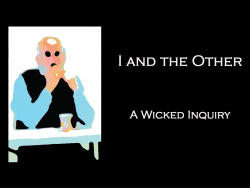
Race is not a tame problem like those of mathematics or popular games. Tame problems thrive in systems with defined internal logic and operational clarity. Race is a wicked problem. There’s the easy label of the human race; and then, the more difficult divisions into tribe, clan, sect, class, nation, and other forms that can […]
Read More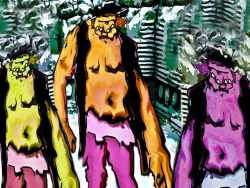
From a bird’s eye view, most children stories can be understood as a process that guides the child into becoming a member of society──a member of a particular culture, a particular place, and a particular time. We tell them about dangers, morals, customs, and cultural beliefs, and how to perform the rituals of daily life. […]
Read More
This is not an article about censorship. It is an article about critical thinking—framed within legislated guardrails. Boundaries are important in elementary and secondary education, more so than in higher education. We immediately think of age-appropriate materials, but there is also the more difficult issue of how we ought to frame education. At some point, […]
Read More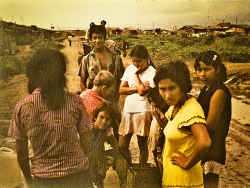
When I was ready to write up my dissertation fieldwork, I was stymied by conceptual perspectives for organizing my data. What I thought about data collection before entering the field of anthropology had been overwhelmed by the reality of fieldwork. That was in the mid-1970s, when the concept of the ‘web’ of society was giving […]
Read More
The airwaves have combusted. Parents confront school boards. Across the country, state and government agencies are moving in opposite directions: some release the genie of racial equity and Critical Race Theory (CRT) while others try to corral it and squeeze it back into the bottle. In California, CRT, either explicitly or implicitly through its aligned […]
Read More
Richard Feynman remarked “for Nature cannot be fooled,” hearkening back to Isaac Newton—a reminder that Nature’s laws are indifferent to what humans think or wish those laws might be. The same goes for biology, which we ignore at our peril. Sex genes appeared some 180 million years ago in mammals. Not only do they make […]
Read More